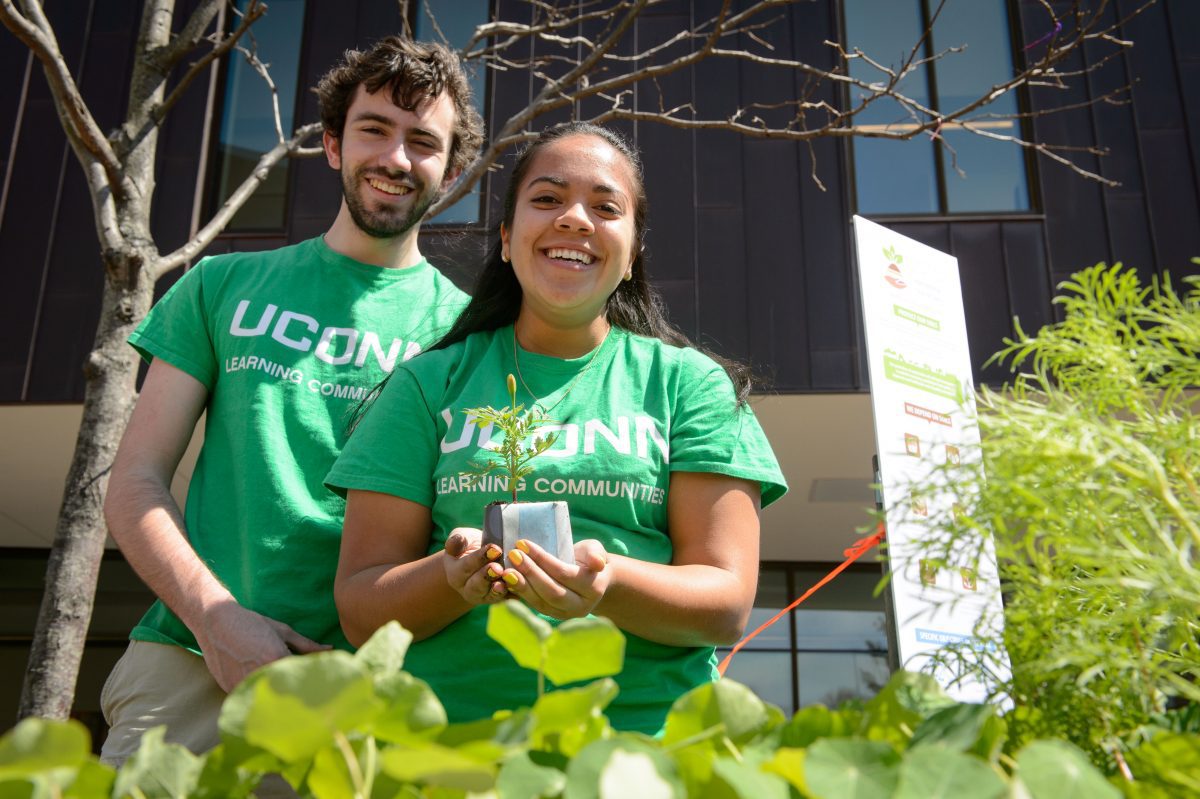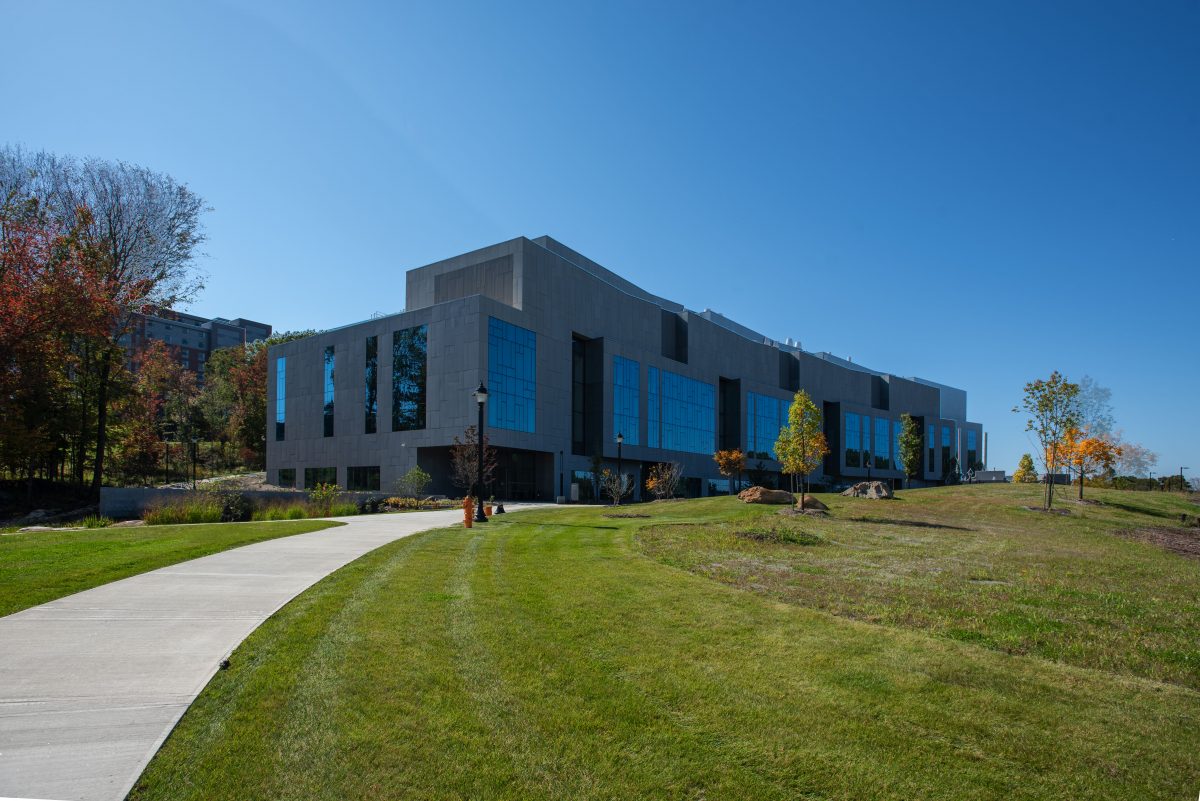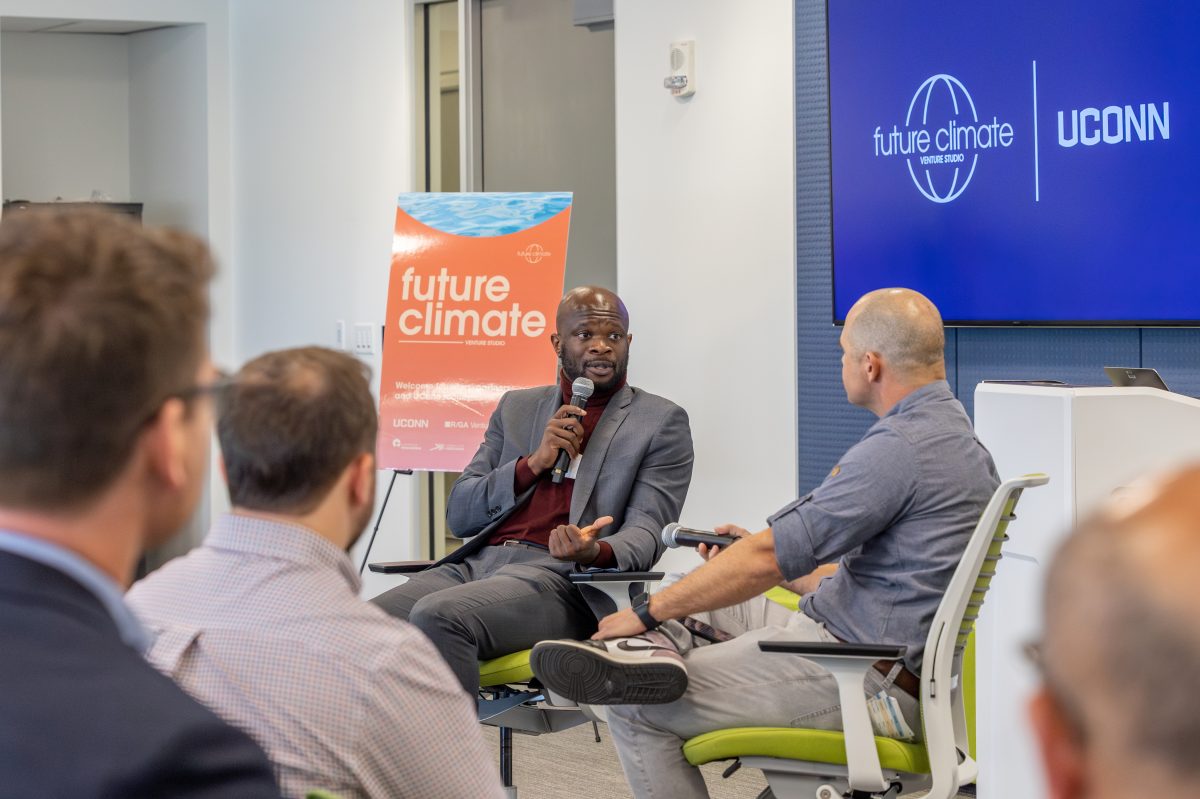Office of Sustainability
Building a Sustainable Campus and a Greener Future.
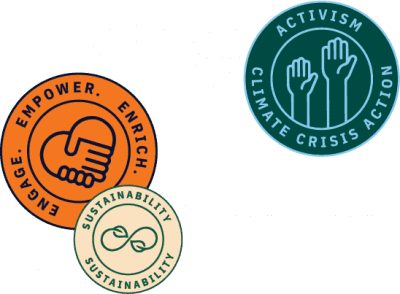
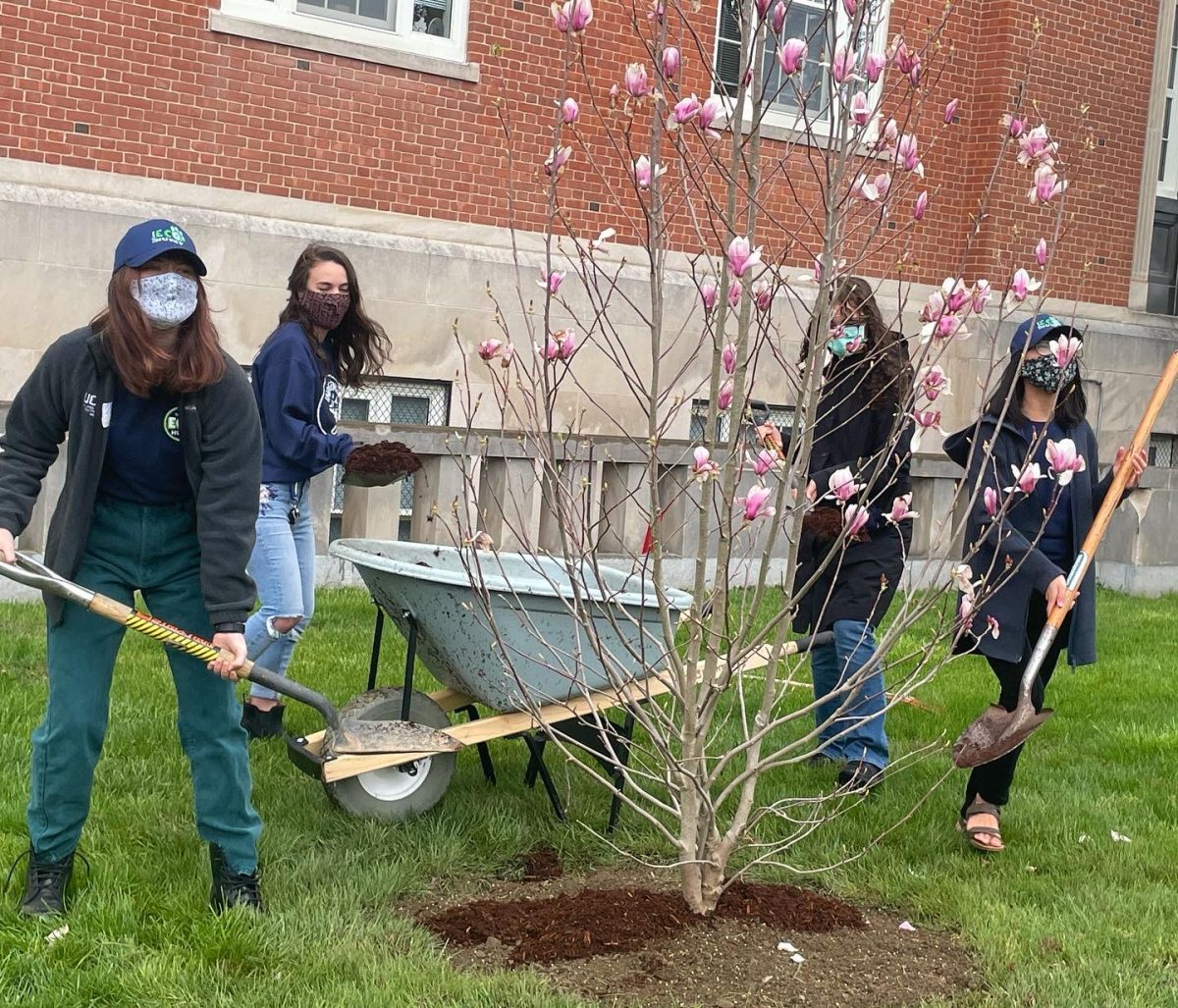
UConn Office of Sustainability
The UConn Office of Sustainability leads the way for campus sustainability efforts. We provide guidelines, direction and support for sustainability in all sectors, from infrastructure to student outreach, and create programs that enhance engagement and awareness around sustainable practices and behaviors at UConn and in the community.
Sustainability Guiding Documents
- 2020 Vision Plan for Campus Sustainability and Climate Leadership
- Sustainability Framework Plan
- 2019-2021 Sustainability Progress Report
- President's Working Group on Sustainability and the Environment Report: Transforming UConn to a Zero Carbon Campus: A Path Forward
- Active Transportation Plan
- UConn Aims to Achieve Carbon Neutrality by 2030
Sustainability News
-

The UConn-led NERR will apply the funds to significant improvements at the popular park, supporting habitat and restoration
- category: sustainability
- columns: 4
- pictures: true
- number-of-posts: 1
- read-more-text: Read More on UConn Today
- show-excerpt: false
- show-date: false
- safe-fetch: 1
- attempted-request: https://today.uconn.edu/wp-rest/wp/v2/posts?category-name=sustainability&posts_per_page=1&adjacent-posts=true&_embed
-

Backed by a grant from the NSF, WISER was established in 2023 to apply the research and expertise at UAlbany and UConn to solve challenges related to energy systems
-

‘Restoring blue carbon ecosystems is far more than just carbon storage, it can also help bring coral reefs back to life’
-

The study found that 98% of schools reported sometimes or always purchasing local produce, while 91% purchase local dairy
- category: sustainability
- columns: 3
- offset: 1
- pictures: true
- number-of-posts: 3
- read-more-text: Read More on UConn Today
- show-excerpt: false
- show-date: false
- safe-fetch: 1
- attempted-request: https://today.uconn.edu/wp-rest/wp/v2/posts?category-name=sustainability&offset=1&posts_per_page=3&adjacent-posts=true&_embed
News from the Office of Sustainability
Are you a UConn student with an idea that can push environmental and social sustainability forward at UConn and in Connecticut? Then apply for our Environmental and Social Sustainability Small Grants!
Projects must advance strategic sustainability goal areas AND related social challenges.
Deadline is March 16, 2026 at 11:59pm.
Winners will be selected by April 1, 2026.
Grant amounts may be up to $10k.
All projects must have a faculty or staff member acting as a mentor, and must have the ability to accept funds on behalf of your project.
Projects must be completed by the end of December 2026.
For all the details, deadlines and materials visit the grant info page.
Earth Day Spring Fling – 2026
Wednesday, April 22
11:00 AM-2:00 PM on Fairfield Way
Rain date: April 27
Earth Day Spring Fling is an annual celebration of sustainability co-sponsored by UConn’s Office of Sustainability and the Department of Dining Services. Established in 2008, the festival features vendors of sustainable and hand-crafted goods, organic and local foods, environmental organizations, and student groups that join together to produce the greatest day of environmental awareness all year! Coinciding with the event is UConn’s annual Arbor Day celebration and ceremonial “class tree” planting.
Event Highlights:
- Zero Waste BBQ: Dining Services is catering an outdoor, zero-waste BBQ featuring vegan, vegetarian and sustainable food options sourced locally. Note – the BBQ requires a flex pass, community meal plan swipe or $TBD credit/debit card.
- Eco Theme Cupcakes
- Dairy Bar Truck
- Goat Yoga: Outdoor yoga with the goats of Bradley Mountain Farm. Bring your own mat. Sign Ups will be announced on the OS instagram.
- Party Peddler Bike: Hop on the 10 person bike for a tour of sustainability along Fairfield Way.
- 2029 Class Tree Planting: As a certified Tree Campus, we celebrate each class with their own tree. This year’s tree, selected by the Freshman class, will be announced soon. The ceremony will be held at 1pm. Location announced when winning tree species is announced.
- UConn Thrift Den: The Thrift Den will highlight some of their free clothes!
- Eco-Vendors: Meet with student and community organizations dedicated to sustainability, as well as eco-minded businesses along Fairfield Way.
**More Details Coming**
Now Seeking Vendors!
If you are an environmentally related business, farm, creator, organization or student club please fill out this registration form before March 31. Free. Your group MUST have an environmental component (e.g. getting people outdoors, making something using locally grown ingredients).
For more information, please email sustainability@uconn.edu.
From a climate-perspective, how can we maintain job security while also pursuing meaningful work that puts people and the planet at the forefront? The UConn Office of Sustainability aims to provide direction to these answers with the annual Green Careers: Engage & Explore Event.
Join us Monday, February 2, 2026 in McHugh as we bring industry and student leaders from across the disciplines for a candid conversation about how they blended their passions for sustainability with their career search. The schedule is below:
- Engagement Fair: 2:30-5:00 in McHugh Lobby
- Student Panel + Pizza 4:00-5:15 in McHugh 301
- Industry Panel 5:30-6:45 in McHugh 301
The goal is to provide students with a clear vision of the next steps, hurdles, and connections they may encounter in their professional journeys. No RSVP required, we welcome all students and faculty from any discipline to come network, ask questions, and have fun!
Panelists include:
Student environmental leaders at UConn
Bill McNamara (EcoEnergy), Sabit Nasir (Town of Groton), Selin Goren (Carbon Containment Lab), Chase Mack (Pfizer), Ryan Li (Revert Technologies), Lilly Adamo (Sustainable CT)
This story was written by two of our undergraduate student interns: Kate Larson and Emma Dutil
Have you ever read sustainability reports that rank universities on their environmental efforts? Have you heard of Green Metric or UConn’s EcoMadness competition? Did you ever wonder who is behind the data collection and statistics? Here at UConn, our students play a pivotal role in sustainability data collection.
The UConn Office of Sustainability is the leader of many sustainability initiatives on campus and offers a unique opportunity for students to involve themselves in university-wide sustainability data collection and tracking. Undergraduate students pursuing a variety of degrees take part in collecting and organizing sustainability metrics across UConn’s campus. We went out and talked to some of those students to find out what work they’ve done this fall and why it matters to the UConn community.
Claire Lawerence, a senior Sustainability Intern, spearheads the data collection for AASHE STARS and UI GreenMetric at the Office of Sustainability. She describes Green Metric as “a university-wide assessment of sustainability based on multiple avenues of campus. This includes Setting & Infrastructure, Energy & Climate Change, Waste, Water, Transportation, and Education & Research.”
When asked about her passion for data collection, Claire noted, “as a data analytics and public policy major, I am passionate about how data backs policy solutions. Without data analytics, we wouldn’t know where we are excelling, and where we need improvement.”
The Office of Sustainability also conducts EcoMadness each year, a month-long competition between UConn’s residence halls. Students in each hall compete to improve their recycling compliance and conserve the most energy and water. Sustainability data collected during the month is analyzed by Office of Sustainability interns, and after four weeks, the most sustainable residence hall wins the competition!
Sustainability Outreach Interns (SOI) collect the recycling compliance data for each of the residence halls. One intern, Anna Dinkel, described via email this process of auditing trash bins: “I look for contaminants, such as non-recyclables in the recycling or recyclables in the trash [and] I note what types of contaminants I see so that the Office of Sustainability can identify common mistakes residents are making.” To help her residence hall out, Dinkel shares that she has “created an approachable recycling guideline flyer that is posted in all of the trash rooms to reduce confusion about proper disposal.”
SOIs work hard to engage with residents and provide sustainability education in residence halls. Intern Maya Bullied said in an email, “it is encouraging when the data shows progress.” She emphasized that EcoMadness results provide a way to observe the direct impact of the Office of Sustainability’s efforts.
Kate Larson, a Sustainability Intern at the Office of Sustainability, takes part in analyzing the EcoMadness data collected each week by SOIs. When asked about this process, she shared: “It’s amazing to see data from all across the university come together; from this project I’ve learned a lot about how to analyze large amounts of data and share it in a digestible form.”
These examples highlight two of many data-driven sustainability initiatives that take place at UConn during the fall term. Whether it’s around campus or in the office, student interns at the Office of Sustainability help collect and analyze sustainability statistics, contributing to a larger process that helps quantify the university’s sustainability goals. If you’re interested in these opportunities and/or want to learn more about data collection at the university, visit the Office of Sustainability website!
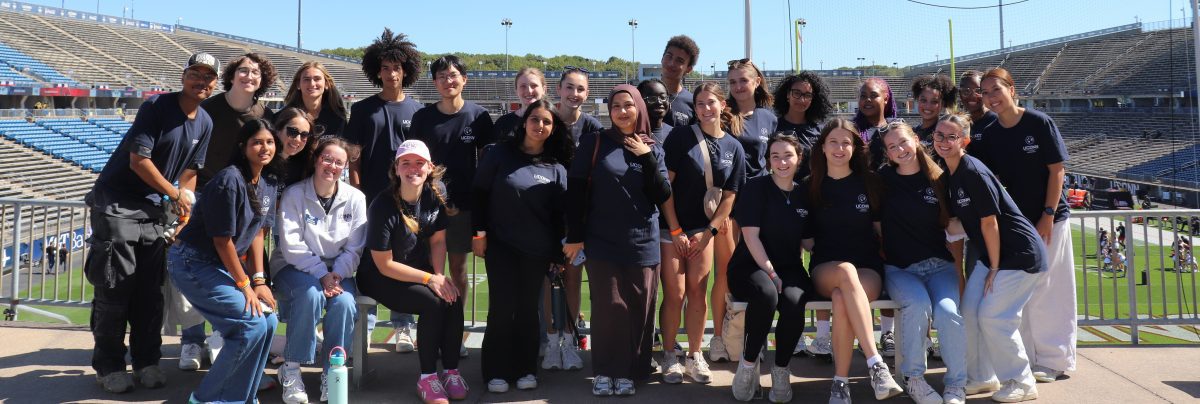
Donate to the UConn Office of Sustainability
Give support to programs and initiatives that contributing to UConn’s international reputation as a leader in university sustainability.
